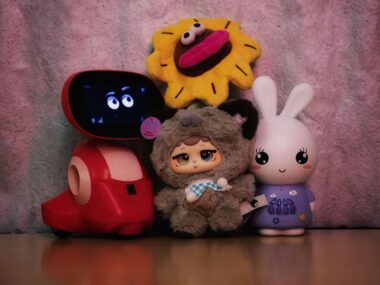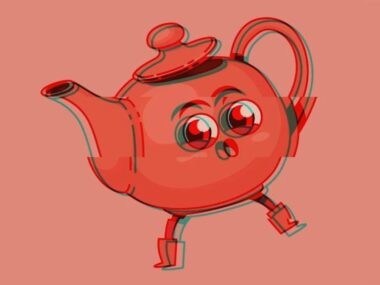The fall of Tumblr was more than the decline of a quirky blogging site. For nearly a decade, Tumblr was the cultural hub. It used to be a safe, progressive for people of color and queer communities. It was the go-to place for fandoms to interact with each other. They shared updates on their favorite music, TV, movies. It was the place where the mainstream and niche subcultures could co-exist. Where marginalized voices could experiment with their identity without fear of ridicule.
When Tumblr banned adult content in December 2018, it was the end of an era. The so-called “NSFW purge” gutted communities that had made the platform vibrant. Traffic fell by nearly a third in the months that followed. Creators scattered and the internet has been dealing with the consequences ever since.
Why Tumblr Fell
It all started when Apple pulled Tumblr from the App Store after discovering child sexual abuse material had slipped through moderation filters. Verizon (which owned Tumblr at the time) faced pressure to restore access, as well as avoiding potential lawsuits. The company landed on the simple route: a blanket ban on all adult content.
The timing couldn’t have been worse. U.S. laws like FOSTA-SESTA made platforms liable for user-posted material connected to sex work. Advertisers already saw adult content as toxic to their brands. Unlike the early days, Tumblr’s new parent company wasn’t interested in nurturing niche communities.
The ban’s definition of “adult content” applied to anything depicting “real-life human genitals or female-presenting nipples.” Explicit illustrations and GIFs were included in the ban, though exceptions were made for art, health, and education. Unfortunately, Tumblr’s automated filters flagged posts haphazardly. A Renaissance painting could be censored without warning. Creators saw the writing on the wall and left in droves.
The Diaspora That Followed
NSFW artists, sex workers, and fandom spaces fled to other platforms. Twitter, Pixiv, Patreon, DeviantArt, OnlyFans, Subscribestar, and Pornhub became places of refuge. Niche startups like Pillowfort or BDSMLR were seen as safe(er) havens. None of them could fill the void Tumblr left behind.
Twitter became the default replacement, but its algorithmic thrives on confrontation. Artists often found themselves pulled into unwanted arguments or experienced harassment. Musk’s takeover was the final straw for a lot of people.
Pressure from payment processors or advertisers caused Patreon, Pixiv, and DeviantArt to add restrictions on adult content. Pixiv had to restrict what could be seen based on which country users were in. Pornhub and similar platforms added stricter ID verification after Visa and Mastercard cut ties. This made them unusable for many independent artists. OnlyFans infamously announced its own NSFW ban in 2021, only to reverse course days later after massive backlash. Imgur quietly grew into a popular place for memes, but it never became “Tumblr 2.0.”
The Rise of Corporate Censorship
Tumblr’s fall wasn’t the first crackdown on adult content. Facebook and Instagram were already restricting explicit content. The difference was that Tumblr was one of the last to still allow it. Not many platforms embraced queer, sex-positive communities like Tumblr did. Its fall set a precedent. If Tumblr couldn’t survive with NSFW content, no mainstream platform would risk it.
Today, the term “adult content” has become a shorthand for anything platforms or their advertisers find risky. It doesn’t even have to be sexual or inappropriate. A trans woman writing about her transition can be flagged by blunt filters. Automated moderation systems still fail, but corporations see them as safer than nuance.
Meanwhile, payment processors and app stores continue to dictate what’s allowed on the web. Since 2020, platforms have been forced to tighten restrictions, often hurting the same marginalized creators who once thrived on Tumblr.
The Cultural Fallout
Losing Tumblr fractured the internet. Instead of a messy, centralized home where everyone co-existed, users now navigate fragmented spaces. Recently, many people have flocked to Reddit. However, communities are split into subreddits, even when those threads are related to the same interest. Twitter has turned into a toxic cesspool of hate. Even “alternative” platforms buckle under the same pressures from advertisers and payment networks.
The internet has grown more polarized as users are pushed into narrow echo chambers. Content moderation policies fuel frustration and mistrust. The scattered diaspora also contributed to the rise of cancel culture. Rage engagement is now a thing where fights erupt out of as simple as a tweet about loving waffles.
What Tumblr’s Fall Taught Us
The story of Tumblr isn’t just about one site’s ban on adult content. It shone a light on who really controls the Internet. When big corporations demanded change, users discovered they had little power to fight back.
The fall of Tumblr showed that no online community is truly safe from corporate interests. Platforms can vanish overnight, rules can change, entire cultures can be erased with a single policy change. The internet doesn’t belong to us. It belongs to the companies that profit from us. If we want something different, we’ll have to build it ourselves.






